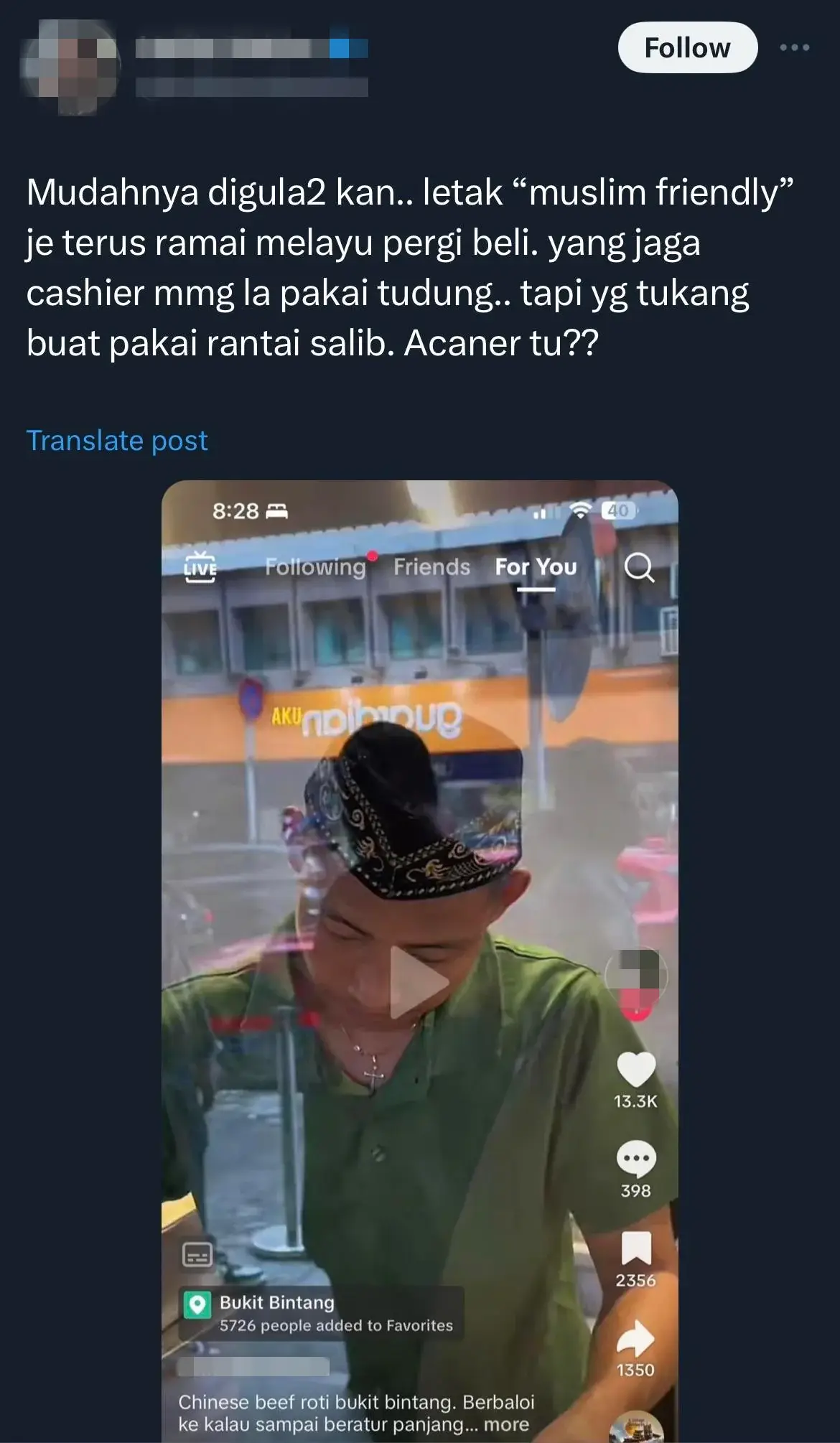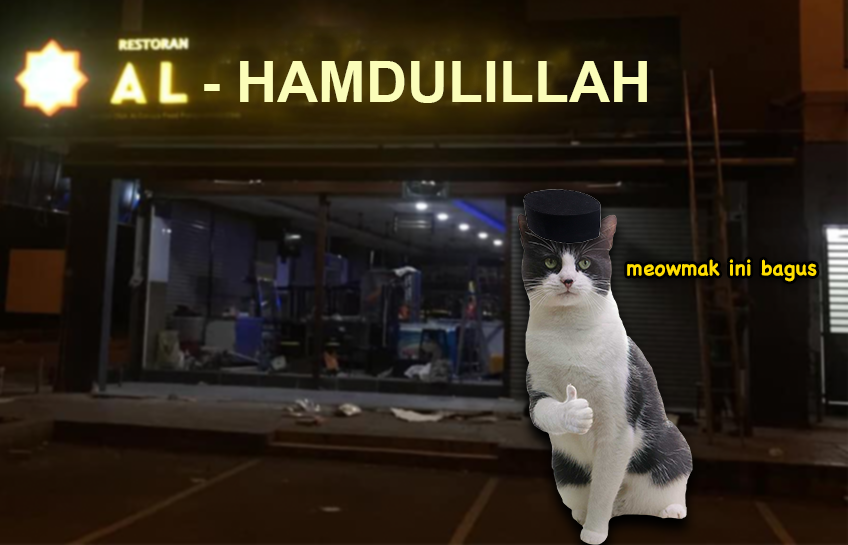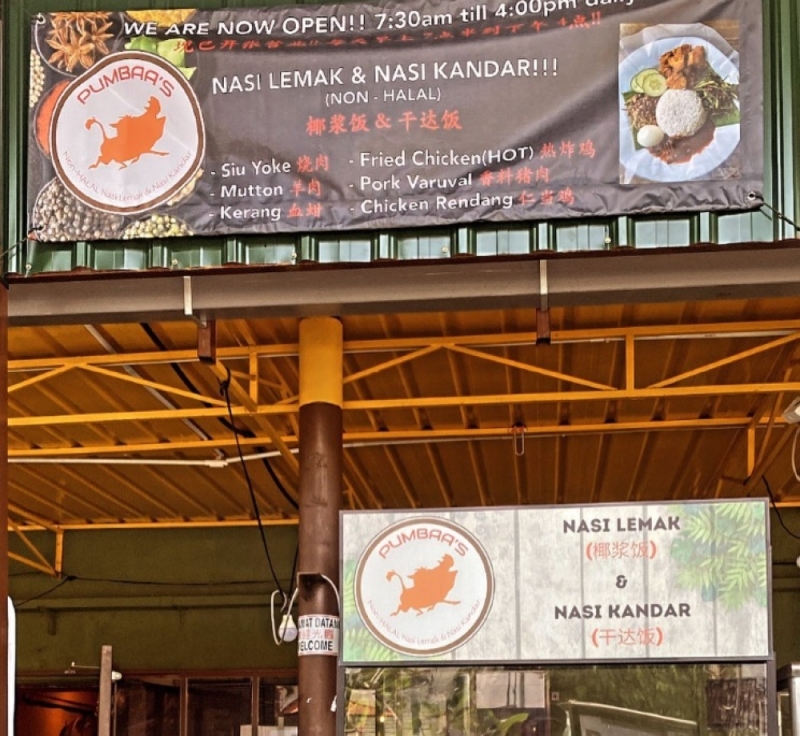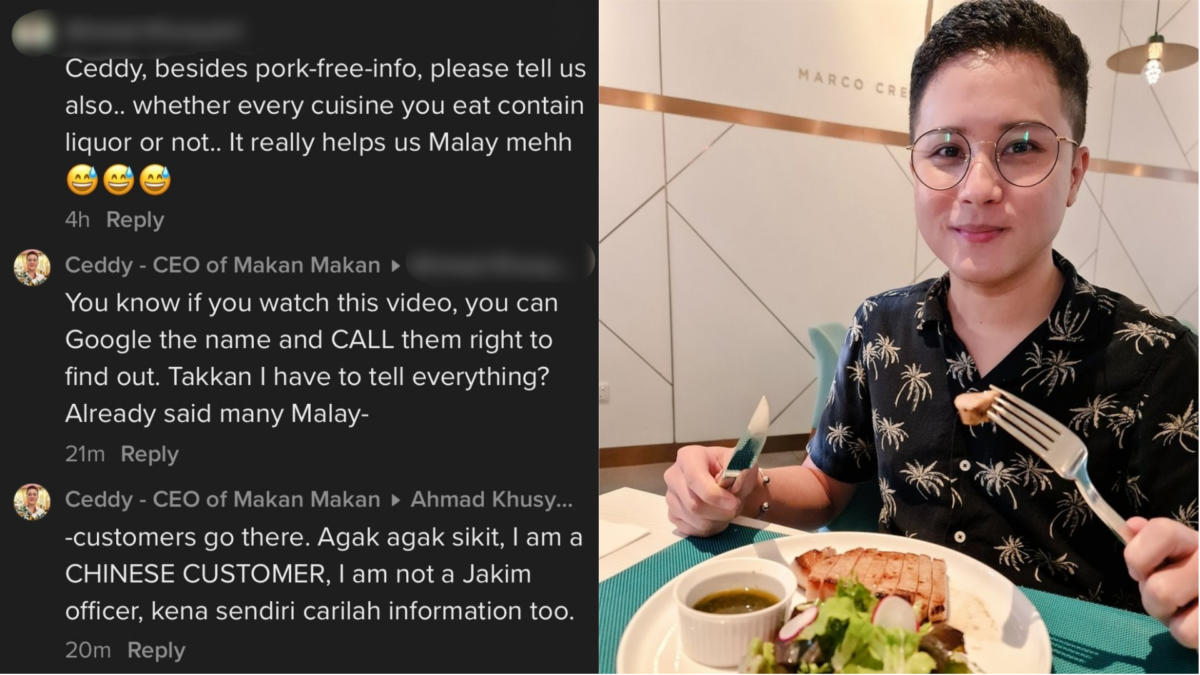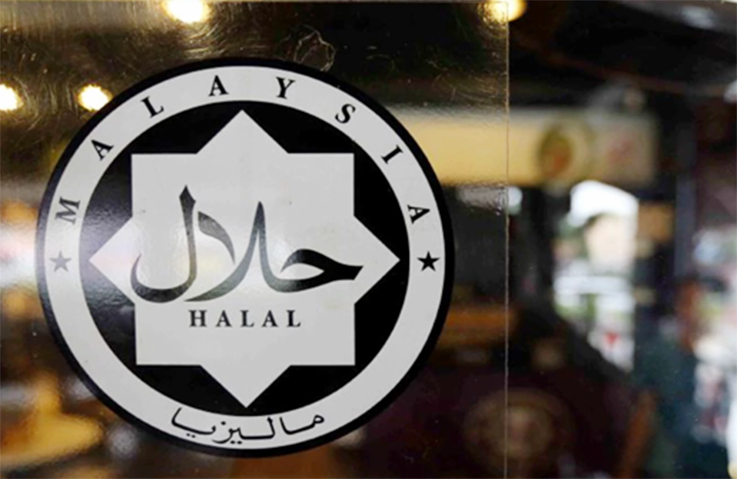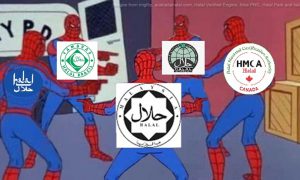Sneaky Ways Halal Restaurants Aren’t Actually ‘Halal’
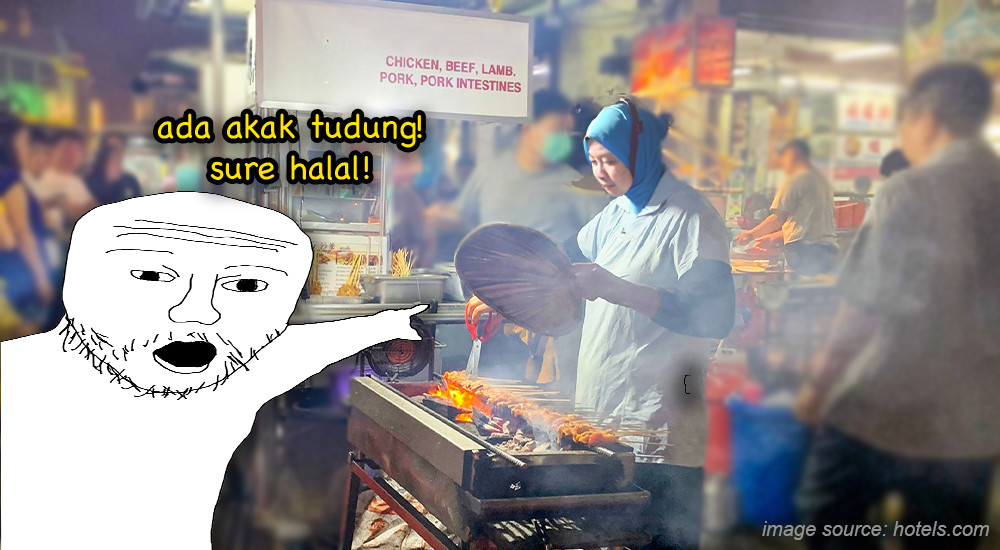
- 277Shares
- Facebook258
- LinkedIn1
- Email1
- WhatsApp17
In the aftermath of the fiasco that involved a man, who was fired from his job for wearing a cross and songkok at a Chinese-Muslim eatery, it got this writer thinking about the way Muslims approach halal restaurants. The outrage pouring from social media stemmed from Muslims believing that they were “tricked” into eating at the Mon Chinese Beef Roti Restaurant because of the man’s attire. But were they though?
Surely, people don’t just assume a restaurant is halal just because it looks halal. It can’t be as simple as getting your staff to wear a songkok as part of their uniform to entice Muslim customers. While we like to believe that we’re smarter than that, we hate to break it to you… but that’s totally not the case.
So, instead of looking for an actual halal certificate to avoid eating somewhere non-halal, here are 4 ways Malay-Muslims trick themselves into eating at non halal-certified restaurants.
1. All halal restaurants have akak tudung working/eating there
Ask any Malay-Muslim who adheres to halal diet restrictions and they’ll tell you that their sure-fire way of telling if a restaurant is onz to eat at is if they see hijabi ladies either working or eating there. Actually, the trust we put into these random ladies, who were probably just hungry and decided to eat anywhere that serves hot food, is completely misguided when we separate the hijab from the wearer. The same can be said for the songkok.
Clothes don’t make the man. Just because someone wears certain headwear – and that’s all a hijab and songkok is – does not make them any more pious than a person who doesn’t, especially when you think about how headscarves and songkoks are worn in different countries and contexts.
In Indonesia, songkoks are not tied to religion, but it’s actually rooted in nationalism. Popularised by the first president of the country, Sukarno, the songkok became a national headdress for a secular nationalist movement and in turn, established itself as part of the official presidential attire. Since the songkok was never seen as a Muslim-exclusive headdress, it is also worn by those outside the religion like Catholics and Protestants who don the songkok as part of traditional attire for church service.
That is why when you go to Indonesia, you might see dudes in songkoks grilling a babi guling and nobody decides to shove a camera in their face to record a TikTok or post it up on Twitter egging people on to get them fired.
But now you’re probably yelling at the screen, “Siapa kisah pasal Indonesia? Kita kat Malaysia! Kita orang Islam!” Well brader, did you know that the origins of the songkok in Malaysia came from a Johor Sultan, who was inspired by the fez? And did you know that the fez was worn by Muslims and Christians?
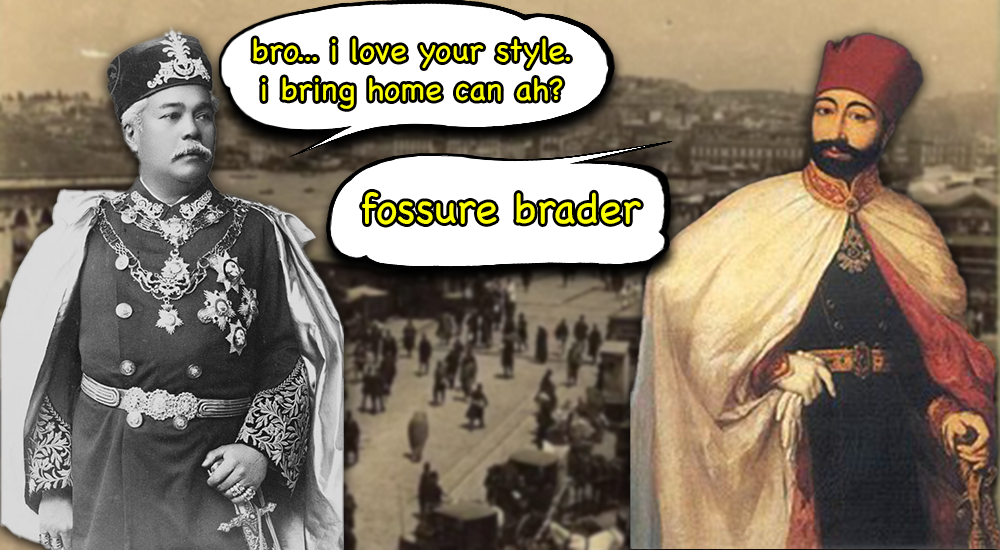
Sultan Abu Bakar noticing the fez-ionable hat
During a trip to Turkey in the 1900s, Sultan Abu Bakar noticed a large number of people wearing a tasseled cap called fez and he apparently liked it so much, he adopted this design into what we know as the songkok today. Prior to this, in prayers, men would generally cover their heads with cloth since it was considered sunat (good practice, but not compulsory). From then on, the songkok became a part of uniforms, most notably the Royal Malay Regiment in 1933, which leads us to present day.
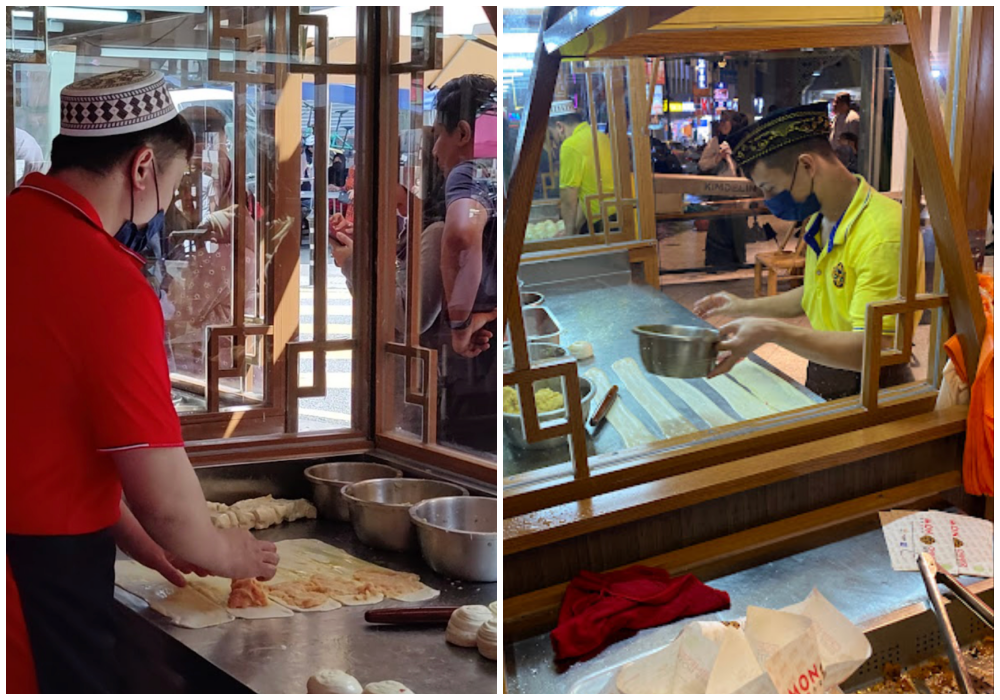
images taken from Mon Chinese Beef Roti Restaurant on Google reviews
The cook at Mon Chinese Beef Roti Restaurant was merely wearing the songkok as part of his uniform, a requirement for working at the eatery. Keeping in mind that the songkok is a modernised head wrap and has been established as part of uniforms before, the termination from his job seems even more unjust.
2. All halal restaurants got AL-something in the name a.k.a mamaks
The best part about Malaysia is that we can eat good food at any time of the day, even during late nights. Most of us would opt for mamaks to satisfy these cravings and as soon as we see a bright signboard with the name Al-Hamdulillah (example only okay), we feel instantly safe to indulge in a hot plate of roti canai or Maggi goreng. I mean c’mon, when a restaurant has a vaguely Arabic sounding name with Quran verses plastered as decor on the walls, how can it not be halal?
Well actually, there was a controversy back in 2021 when a man uploaded a viral post on Facebook sharing the ways in which to tell if a mamak restaurant is being handled by Indian-Muslims or Hindus. The post received over 5k shares and spawned many articles based on his tips. As a result, many Muslims became more wary of mamaks and started implementing the tips, like greeting the workers with ‘Assalamualaikum’ and seeing if the restaurant sold beef dishes, before dining in.
But the most important tip given was to check if the mamak restaurant is registered under PRESMA, which stands for Persatuan Pengusaha Restoran Muslim Malaysia. In case you weren’t aware, most mamaks do not have the halal certification, but instead operate under PRESMA. However, when we checked to see the full list of restaurants certified by the organisation, the webpage resulted in an error.

Personal screenshot. Please don’t shame the writer for the number of tabs she has open
Despite the two bodies PRESMA and JAIS (Jabatan Agama Islam) agreeing that there was no need for a halal certification when the former body existed, it still led to over 200 complaints by consumers who doubted the halal legitimacy of our favourite late-night stomping ground. But even with all this confusion, it doesn’t stop Malaysians from getting an Extra Joss and thosai at the mamak – halal dietary restrictions begone!
3. If the menu is in Bahasa Melayu, it’s halal

Calculating the halal-haram ratio of saying ‘Bismillah’ before I eat at a non-halal restaurant
It’s understandable to look at a menu that serves food that you can’t pronounce and lose your appetite. We are creatures of habit after all, so we tend to go for our comfort food and what’s more comforting than a heaping plate of Nasi Kandar or Nasi Lemak? Well, that’s unless they put babi in it lah…
Another controversy – we promise we’re not a gossip tabloid – that erupted on the internet was the issue of Nasi Kandar Babi and Nasi Lemak Babi. Malaysians were flabbergasted that our classics were being remixed into an oink oink version and some even took offence to this, stating that it was misleading to serve “Malay” food with pork. But actually, the restaurant who served these dishes were upfront about their haram-ness from the get-go.
You see, the restaurant mentioned advertised their food accurately by stating that they serve pork, so the fault is really on the Malays who buta-buta believe that just because something has a Malay name, it is automatically halal. This is especially common with restaurants that provide menus written in Bahasa Melayu (not Bahasa Malaysia okay. Thanks Anwar!). Since being a Malay in Malaysia is perpetually tied to Islam due to Shariah law, the assumption that any menu written in Bahasa Melayu caters to Muslims will remain prevalent.
But wait, if we applied that same logic to, say, Chinese restaurants, wouldn’t that make every menu written in the Chinese language non-halal? That’s some food for thought for the next time you walk into Koong Woh Tong for your herbal jelly fix.
4. Viral? Meleleh? No need halal certification, put it in my mouth!
So many adjectives to describe cheese but where is the most important one? Halal!
The power of social media in the modern age is almost inescapable. You’re probably reading this article because you found it on social media and I’m only writing it because of the viral tweet that started this mess. So it comes as no surprise that social media dominates when it comes to influence on average consumers.
Nowadays, we just need to slap the word ‘viral’ on a product to entice hoards of customers to buy it. If you walk by a pasar, you would see at least 10 stalls advertising something along the lines of ‘viral [insert random food/drink] meletop kebabom’ and at these stalls, there would always be a line. Does this mean it’s good? Maybe. Does this mean it’s halal? Not necessarily.
It has come to a morbid point where consumers would place misguided trust on viral social media influencers to recommend halal eateries, even if they’re non-Muslim. Take for example, Ceddy Ang (better known as @ceddyornot), who rose to popularity for his funny food TikToks spoken in Malay. Due to his Malay-Muslim majority followers, his comments are constantly flooded with “Halal ke?” even after the video clearly states that the restaurant serves pork.
In this modern era, it seems that everyone is complacent with following the hoard and being spoon-fed. Not to sound like your mother but if your friend jumps off a bridge or eats viral takoyaki cheese meleleh, will you blindly follow them? Actually, don’t answer that.
There’s only one real way to identify halal restaurants
To some people, the matter of whether or not something is certified halal may not be that big of a deal, but for certain Muslims it is a matter of life and death. Actually, to be more accurate, it’s a matter of life and the hereafter. It’s almost as serious as having a deadly allergy and that’s not even an exaggeration.
What if you eat something haram then you’re struck by a car and die instantly. Would you go upstairs or downstairs? And would you risk not knowing?

Tak pasal-pasal turun lif
The halal certification is integral for Muslims to stuff their faces without feeling was-was. But even this certification brings about problems. Most notably, many business owners have complained that the halal certification is expensive and difficult to get. Generally, the waiting time for the certificate is also arduous – taking approximately nine months to 2 years.
Thankfully, in October 2023, after endless complaints, Deputy Prime Minister Ahmad Zahid Hamidi has enforced that the two bodies Malaysian Islamic Development Department (Jakim) and Halal Development Corporation (HDC) will cooperate and expedite the process to only 23 days as well as simplifying the application and renewal process.
With measures like these being taken, it ensures that all parties benefit. The Muslims can rest assured that their food is halal-certified, businesses can welcome more customers, and non-Muslims can wear religious symbols without getting fired from their job.
Otherwise, you’d be reading more spicy articles like this and I would be forced to write them…
- 277Shares
- Facebook258
- LinkedIn1
- Email1
- WhatsApp17

